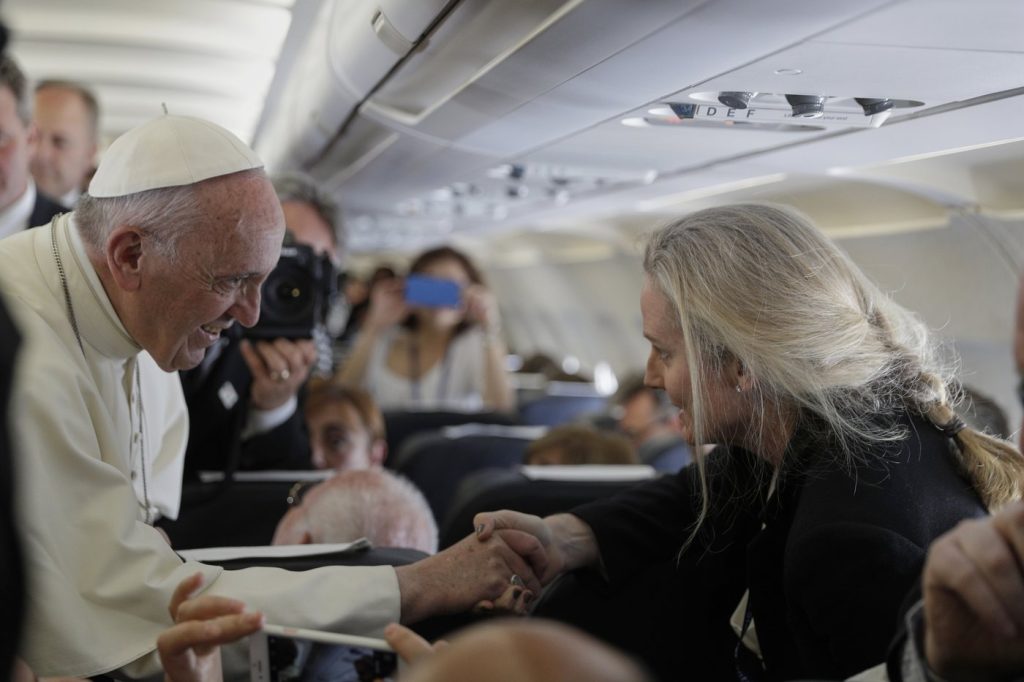VATICAN CITY The unique relationship between Pope Francis and the Associated Press correspondent Nicole Winfield highlights the evolution of papal communications in recent years. Winfield, who was given the nickname “la prima della classe,” or “the first in class,” by the pope in 2018, recounts the context behind this label. The year marked a challenging time for Francis as he faced intense criticism for his handling of sexual abuse cases involving priests, particularly during his controversial trip to Chile.
While in Chile, Francis had discredited victims, defended a bishop implicated in covering up abuse, and appeared insensitive to the suffering of those affected. Upon returning to Rome, during an in-flight news conference, Winfield pressed Francis on the Chile scandal, challenging his perception that no victims had come forward with accusations against Bishop Juan Barros. Winfield stated emphatically, “It’s the victims who are saying this,” pushing back against Francis’ claims.
This exchange was emblematic of Winfield's professional dedication and the shifting dynamics between the pope and the press. Rather than retaliating against her, Francis opted to initiate an investigation into the claims and later issued an apology to the victims for his previous remarks, showcasing his remarkable ability to acknowledge mistakes. In a 2023 interview, Francis recognized this moment as pivotal in his understanding of the abuse crisis within the church, recalling the intensity and significance of the discussion he had with Winfield.
Winfield reflects on how the nickname “la prima della classe” emerged during her coverage of the aftermath of the Chile scandal. During his papal visit to Ireland, he greeted her with the moniker, recognizing her role in bringing the truth to light regarding the serious allegations he initially mismanaged. While the term can imply a positive acknowledgment, it also carries a subtle hint of derision, suggesting a know-it-all attitude.
Over the course of his papacy, Francis' interaction with the media transformed significantly. Initially wary of journalists due to prior negative experiences in Argentina, he progressively embraced the press as a tool for communication, often using airborne news conferences to discuss contentious issues and clarify his positions. He has engaged more with the press than his predecessors combined, demonstrating a willingness to adapt his communication style.
An important moment in Winfield’s recent interactions with Francis occurred in January 2024, when she discussed a personal conflict regarding her daughter’s college orientation coinciding with rumors of a forthcoming papal trip to Asia. In a moment of spontaneous candor, Winfield suggested delaying the trip to avoid conflicts. Surprisingly, months later, the Asia tour dates were announced to align with her schedule, leading to speculation that her conversation may have influenced the decision-making process behind the trip.
Once the trip commenced, Winfield covered Francis as he visited multiple countries, including Indonesia and Singapore, despite his physical challenges. Her reporting reflected his resilience, highlighting how he engaged with his congregation and reaffirmed his commitment to his papal duties even in his later years.
As she reflects on this journey and her relationship with Pope Francis, Winfield acknowledges the complexity of their interactions, rooted in a mutual respect developed over years of reporting and confronting challenging issues. Her status as “la prima della classe” symbolizes not just a nickname but a significant relationship built on accountability, truth-telling, and an evolving understanding of the roles both the pope and the press play in the contemporary church.











